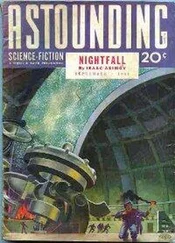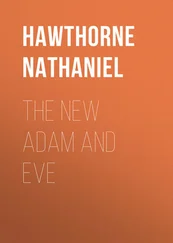At an exit leading to a couple of villages he pulled off the main road. It was three-quarters of an hour past noon. He drove to a hotel he knew-in the days when he was carefree, he and Ivo Carew had once spent a pleasant weekend there-and ordered lunch. But his appetite failed him and he couldn’t eat a thing.
Before she went down to the reporters Zillah had dressed herself and the children with great care and forethought. She’d devoted a lot of time to planning it the night before. Eugenie and Jordan wore the uniform of fashionable upper-middle-class children in summertime at the turn of the millennium: white sneakers, white shorts, white T-shirts, with stripes in Jordan’s case and modish spots in Eugenie’s. Zillah herself was in white trousers and a blue shirt with plunging neckline. Remembering what some awful journalist had said about her shoes, she’d put on flat sandals.
Eugenie hadn’t wanted to wear shorts and at first had refused flatly: “I’m not that sort of girl. You ought to know by now. I either wear long trousers or a dress. You ought to know.”
“I’ll make it worth your while,” said Zillah recklessly. “Five pounds.”
“Ten.”
“You’ll come to a bad end.” Zillah used the same words her mother had used to her twenty years before.
Jordan sniveled. Zillah had thought of quietening him in some positive and dramatic way, such as by giving him a tot of whisky, but she’d lost her nerve and had resorted to junior aspirin instead. It had had no effect.
She smiled charmingly at the reporters and posed, holding a hand of each child, for the photographers. Jordan stopped crying for five minutes, fascinated by the biggest dog Zillah had ever seen that one of the cameramen had brought with him. She said she had something for them all and passed out copies of a statement she’d done on Jims’s computer the night before. It said that everything in that morning’s paper was true and she’d only like to add that she’d be standing by her husband and supporting him through thick and thin. She and he had spoken several times on the phone that morning and she’d assured him of her devotion and her determination to be a rock for him to cling to. She answered only one question before retiring into the building with dignity.
A young woman with a Yorkshire accent asked her if Jims was bisexual.
“I’m sure he won’t mind my saying that yes, he is. Everything has to come out into the open now.” In one of Malina’s favorite phrases, she added that trust and caring “must be the building blocks of our new relationship.”
Jordan burst into fresh tears. Satisfied with what she had done, Zillah carried him up in the lift. After the interviews and the photographs she felt rather flat. She was in the position of having absolutely nothing to do. When would Jims get back? It was a lie she’d told the newspaper people when she’d said she and Jims had spoken several times that morning. She knew he wouldn’t phone and she’d no intention of phoning him. But he’d be home and she wasn’t going to be there when he came if she could help it. When she’d rejected the idea of the cinema, swimming pools, and the various entertainments on offer at the Trocadero, she took the children out to lunch at McDonald’s and then on a river boat to the Thames Barrier. The water was calm and the motion slow, but Jordan was sick and cried all the way home.
They returned to the flat at six and Jims still wasn’t back. Unless he’d come in and gone out again. She suspected this wasn’t so and was proved right within ten minutes. By that time she’d changed into a pair of beach pajamas she’d bought at a shop at The Cross, remembered her father was ill but didn’t phone her mother, and put both children in the bath. The front door opened and closed. When she turned round she saw Jims standing in the doorway. His face was pale and he looked racked with anxiety.
“I’m just going to phone my mother,” she said nervously.
“Not now,” he said, and “May I get you a drink?” in the silky tones he used when he was either very pleased or very angry.
She didn’t know whether to say yes or no. She rinsed her hands under the tap and dried them. “A gin and tonic, please.” Her voice came out rather timidly. She followed him into the living room.
He brought her the drink and stood over her for a moment or two. There was nothing threatening in his stance but he himself was a threat to her and she flinched. He laughed, a bitter, dry laugh. “I’ve seen the newspaper,” he said, sitting down. “I suppose it’s a newspaper, I don’t know what else to call it. And I’ve talked to the media. A bit OTT, wasn’t it?”
“Wasn’t what?”
“The things you said to La Reckman. And the photograph you gave her. Did I really deserve that?”
“Of course you did, the way you’ve treated me.”
A wail came from the bathroom and Eugenie walked in, wearing her nightdress and dressing gown. She looked at Jims as a householder might look at a dog turd on the doorstep but said nothing. “I’m not getting him out of the bath,” she said to Zillah. “He’s your responsibility, as I keep telling you. He says his tummy hurts.”
Zillah went. So, after a moment or two, did Eugenie, returning in a few seconds with a book. Jims’s world had ended but he meant to die bravely, triumphantly exacting vengeance. He took out of his pocket a packet of cigarettes and lit one. It was the first he’d had for six months and it made him feel a bit faint, but he savored it and thought he might start smoking seriously again. Nobody would admonish him now, no one would ask questions in the Commons Chamber about disgusting habits, no one would suggest he set a good example. He inhaled and his vision swam. If he hadn’t been sitting down he’d have fallen over. Jordan’s yelling heralded his entry into the room.
Zillah came after him. “Why are you smoking?”
“Because I like it,” said Jims. “Put that child to bed.”
“There’s no need to talk like that. He hasn’t done you any harm.”
“No, his mother has.” He got up and switched on the television. A cartoon happened to be on and for five minutes Jordan was quiet.
“Give me a cigarette, please.”
“Buy your own. God knows, I give you enough money.” Jims drew showily on his cigarette, blowing smoke into Zillah’s face. “I don’t expect you to be out of here until Friday,” he said. “I am, in fact, giving you a week’s notice.”
“Now, wait a minute. You can’t do that. If anyone goes, you do. You’re married to me, remember? I’m your legal wife. I’ve got children and therefore a right to your home.”
“You didn’t really believe in that marriage ceremony, did you, my dear? I wouldn’t have credited that the wool could so easily be pulled over your eyes. You believed Kate Carew was a registrar? You actually swallowed Kevin Jebb as a witness? You and I haven’t even been cohabiting. Neither of our so-called marriages was consummated. You’re just a friend I’ve taken in when you hadn’t a roof over your head. Out of the goodness of my heart.”
Zillah stared at him. She couldn’t speak.
“But I grant you’ve grounds for expecting some sort of maintenance from me. So I spent the morning negotiating a purchase with an estate agent. I’ve also had a pleasant chat with the owner. That’s why I was so late back. And I’m glad to say the sale’s been agreed. I’ve bought Willow Cottage for you. Aren’t you pleased?”
As Zillah began to scream, Eugenie looked up from the floor and said, “Mummy, do you mind? I can’t hear the TV.”
A BOY DELIVERING papers found Eileen Dring’s body at six forty-five on Sunday morning. He was just sixteen and it gave him a bad shock. The body was still on the seat where Eileen Dring had settled for the night. But for the blood that had soaked through her clothes and the blanket with which she had covered herself, she would have seemed asleep. Perhaps she had been stabbed in her sleep and had known nothing about it.
Читать дальше











